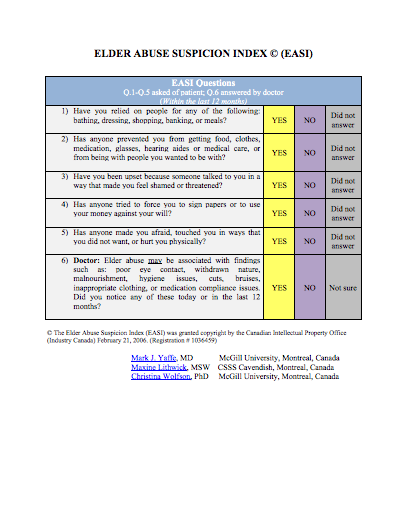Practice Tools
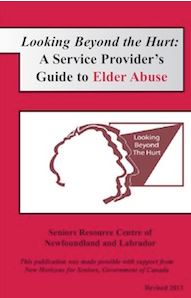
Source: Newfoundland and Labrador Network for the Prevention of Elder Abuse
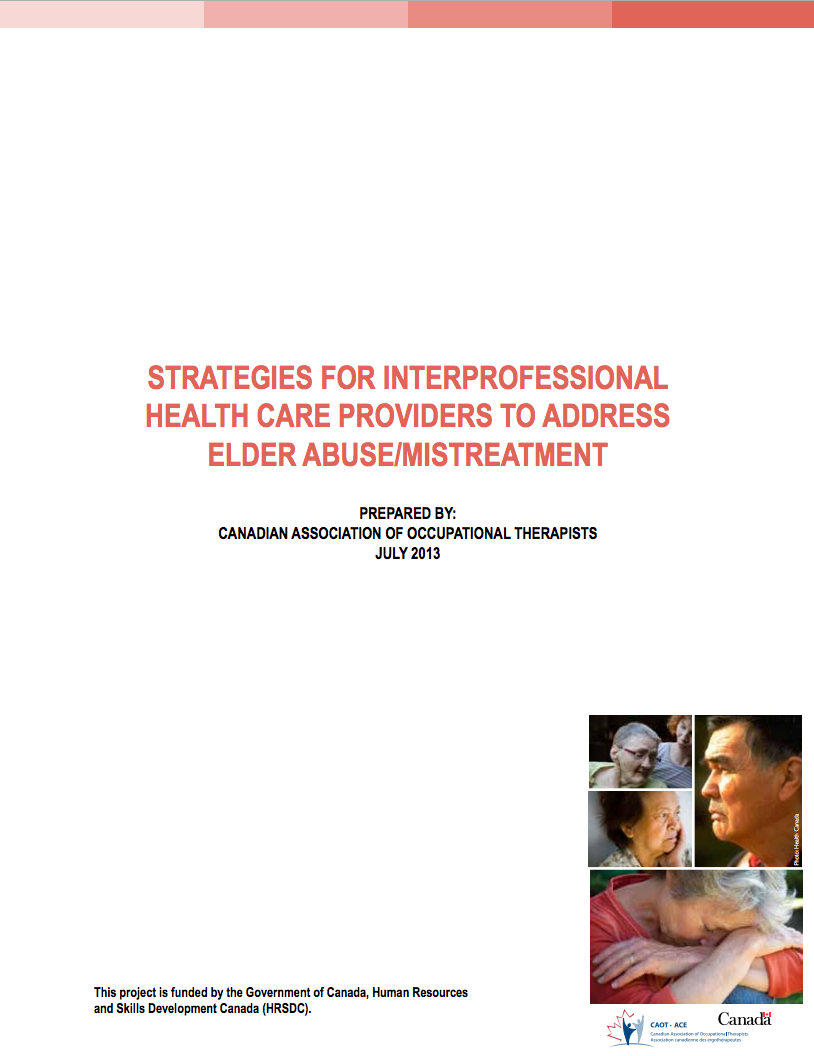 "Because they are frequently in close contact with clients and families, health care providers are often in a position to be entrusted with information about abuse/mistreatment of elders. This inter-professional project started with, occupational therapists who felt they needed more information on their responsibilities in such instances and on potential strategies for intervention and came to the Canadian Association of Occupational Therapists (CAOT), their national professional association for advice.Building on the Strategies for occupational therapists to address elder abuse/mistreatment, this project aims to develop a curriculum for health care providers to learn about indicators of elder abuse, prevention, assessment and intervention protocols, relevant legislation and available resources. The curriculum will be delivered in face- face workshops (with teleconference/video link option for those remote) in various regions across Canada. The expected outcome of the training workshops is to have participants knowledgeable and skilled to deliver interdisciplinary educational sessions in their regions. CAOT is proud to be a leader in building capacity for managing situations of elder abuse and to share this information with other health care professionals across Canada."
"Because they are frequently in close contact with clients and families, health care providers are often in a position to be entrusted with information about abuse/mistreatment of elders. This inter-professional project started with, occupational therapists who felt they needed more information on their responsibilities in such instances and on potential strategies for intervention and came to the Canadian Association of Occupational Therapists (CAOT), their national professional association for advice.Building on the Strategies for occupational therapists to address elder abuse/mistreatment, this project aims to develop a curriculum for health care providers to learn about indicators of elder abuse, prevention, assessment and intervention protocols, relevant legislation and available resources. The curriculum will be delivered in face- face workshops (with teleconference/video link option for those remote) in various regions across Canada. The expected outcome of the training workshops is to have participants knowledgeable and skilled to deliver interdisciplinary educational sessions in their regions. CAOT is proud to be a leader in building capacity for managing situations of elder abuse and to share this information with other health care professionals across Canada."
Source: Canadian Association of Occupational Therapists
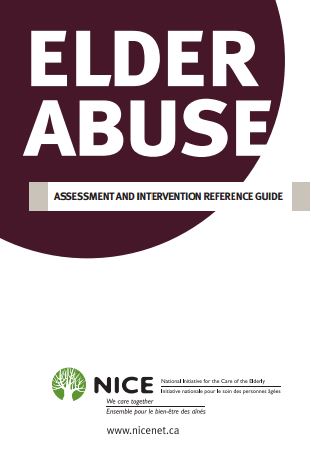
"Under grant support from CIHR the EASI was developed and validated in English and French by an interdisciplinary team affiliated with McGill University to help family physicians detect those in their practices who are victims of elder abuse. Since mistreatment and neglect of older adults is a complex phenomenon with a multitude of suggested risk factors, a number of theories as to its etiology, and a broad range of physical or psychological manifestations, the EASI was not designed to be a screening tool in the traditional sense. Rather, the EASI respects doctors’ decision-making and diagnostic strategies that commonly involve indices of suspicion. It therefore aims to raise a doctor’s level of suspicion about elder abuse to a level at which the physician himself or herself makes in-depth exploration or asks permission of the patient to refer her or him for specialized evaluation by social service workers, adult protection workers, or specially trained police.
The EASI was validated for enquiry by family physicians of patients in their offices aged 65 and over, with a Folstein MMSE score of 24 or above. The EASI is comprised of only six questions and is rapid to administer. The first five are asked by the doctor and answered by the patient in a YES / NO format. The sixth question is answered by the doctor, based on his or her observaitons of the patient. In the majority of cases EASI completion takes about two minutes to do; maximum reported time is five minutes."
Access the EASI tool in 16 other languages here
Source: McGill University
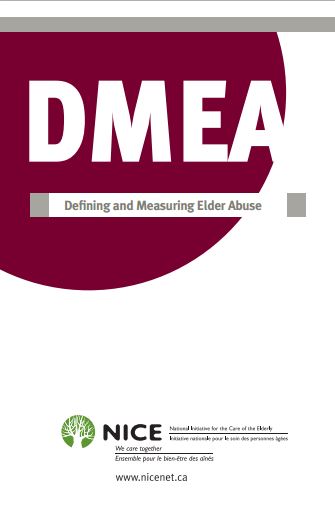
“Mistreatment of older adults refers to actions/behaviours or lack of actions/behaviours that cause harm or risk of harm within a trust relationship.”
Page 10 of 15


